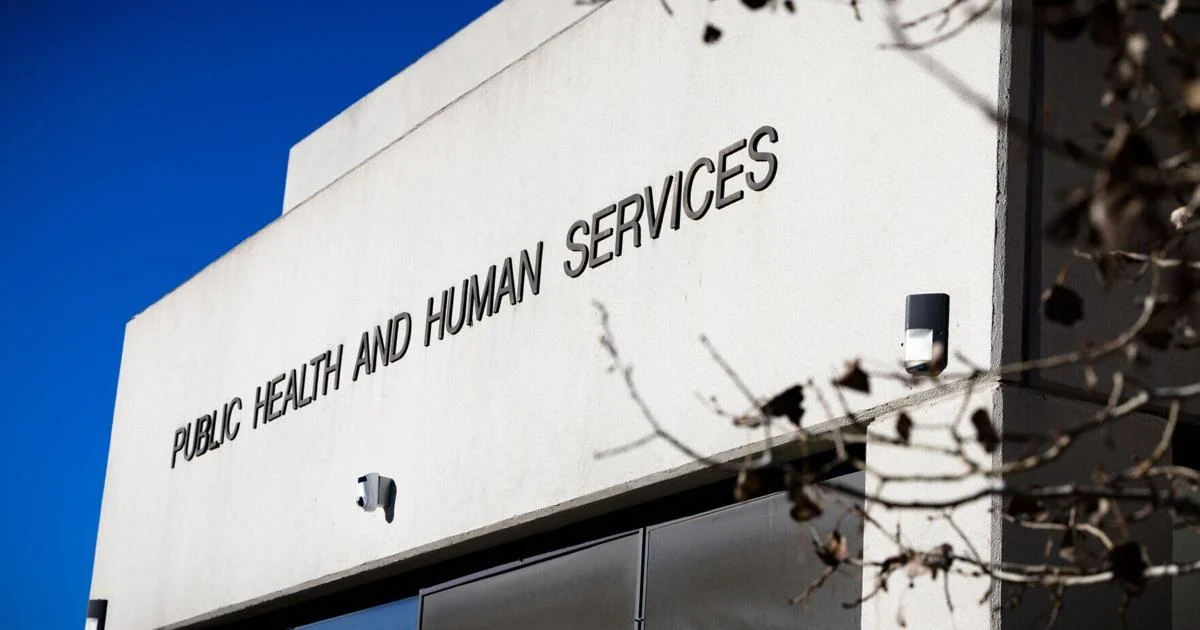
The U.S. Department of Justice is investigating whether Montana is violating the Americans with Disabilities Act by failing to provide services to children with behavioral health needs.
Attorneys and analysts with the federal justice department’s Civil Rights Division held multiple listening sessions with parents and providers in communities throughout Montana last week. Those gatherings — held in Missoula, Billings, Helena, Glendive and Glasgow — were coordinated in part by Disability Rights Montana.
James Fletcher, a trial attorney with the disability rights section of the federal government’s Civil Rights Division, explained that his team is looking into allegations that Montana has failed to provide sufficient community-based services, meaning children end up in psychiatric residential treatment facilities or other institutions when they could get help closer to home.
He reiterated to attendees at listening sessions that his team is squarely within the investigative, fact-finding stages of a complaint-driven process.
“We still are in the investigation phase; we have not made any findings. But that’s why we came here, to hear from individuals,” Fletcher said. “We have heard enough that it was worth it to come out here, obviously, but we are still in the investigation phase.”
Montana is in the midst a broader behavioral health crisis, one that spurred state officials to commit $300 million to shoring up gaps in its system in 2023. That process remains ongoing and targets populations well beyond the youth needs currently at the center of the federal justice department probe.
The source of the complaint that brought Fletcher and a handful of investigators to Montana is so far unclear; Fletcher declined to speak with a reporter when approached at an event in Missoula. Several calls last week made to Disability Rights Montana and its executive director David Carlson were not returned by press time.
When speaking to parents in Helena on Wednesday, Fletcher indicated issues have been uncovered and that investigators are trying to understand how different regions may be impacted differently.
“The more complaints we see, obviously that supports the notion that it is a broader problem, and so hearing everyone’s different stories can help support our investigation,” he said during Wednesday’s listening session in Helena. “We don’t just pick states; county-to-county may be very different, so we do see that the contours of people’s problems might be slightly different in different parts of the state. So, we are very interested to hear unique aspects of these experiences.
“Obviously, there are overarching problems,” he continued.
DPHHS declined to comment on whether it was aware of the investigation and did not provide answers to questions from the Montana State News Bureau about whether it believed there was any validity to the complaint.
Disability Rights Montana is a part of the country’s federally funded Protection and Advocacy Organization system, which grants certain authorization to those organizations, such as access to state facilities or legal assistance for people with disabilities.
Comments shared by parents at the community meetings attended by the Montana State News Bureau tended to focus on the complicated web of seeking out services for their children.
Several described ending up in hospital emergency department waiting rooms — often for several hours — because no behavioral health services were available to their children. Others shared how their children had to leave the state in order to get appropriate treatment.
Turnover among youth case managers remained a stubborn feature of the system since the state slashed community services in 2017 in response to a budget deficit, and it was a theme that parents kept coming back to when speaking with the DOJ investigators; one Missoula woman said her family has seen seven case managers in two years.
Fletcher said reaching a decision could take months or even a year.
“Part of that is because we want to reach a solid enough finding that it would be durable … but it is challenging because we recognize the urgency of the situation that parents are facing today, but the process does take time,” he said.
Some parents wondered what consequences would come of an investigation. If DOJ finds a violation, Fletcher said the department would issue a “letter of findings” that lays out the scope of the issue and tries to work with the state to resolve things.
Should there be a violation, ideally the state would review the findings and agree that it needs to take steps to remedy a violation, Fletcher said. Some changes could require rulemaking or legislative action, which would take longer to resolve.
Carly Graf is the State Bureau health care reporter for Lee Montana.
You must be logged in to react.
Click any reaction to login.
Love
0
Funny
0
Wow
0
Sad
0
Angry
0
Get Government & Politics updates in your inbox!
Stay up-to-date on the latest in local and national government and political topics with our newsletter.
* I understand and agree that registration on or use of this site constitutes agreement to its user agreement and privacy policy.
Seaborn Larson
State Bureau Reporter
Get email notifications on {{subject}} daily!
Your notification has been saved.
There was a problem saving your notification.
{{description}}
Email notifications are only sent once a day, and only if there are new matching items.
Followed notifications
Please log in to use this feature
Log In
Don’t have an account? Sign Up Today
Carly Graf
State Bureau Health Care Reporter
Get email notifications on {{subject}} daily!
Your notification has been saved.
There was a problem saving your notification.
{{description}}
Email notifications are only sent once a day, and only if there are new matching items.
Followed notifications
Please log in to use this feature
Log In
Don’t have an account? Sign Up Today



